CFAR

Overview
“Make no little plans; they have no magic to stir men’s blood and probably themselves will not be realized. Make big plans; aim high in hope and work.” Daniel Hudson Burnham (1846-1912)
Like the transformational Chicago architect, Daniel Burnham, the Third Coast Center for AIDS Research (CFAR) has a grand vision – to end the HIV epidemic, with Chicago as a national model for high-impact research collaborations. Third Coast CFAR partners include Northwestern University and the University of Chicago, the Chicago and Illinois Departments of Public Health, and key community organizations, including Howard Brown Health, AIDS Foundation of Chicago, Center on Halsted, AllianceChicago, and many others.
CFAR Administrative Staff

Patricia Braboy
Community Engagement Coordinator
Bio
Patricia V. Braboy (she/her/hers) is a proud 2014 graduate of THEE Jackson State University. She is currently enrolled in the University of Michigan’s sexual health educator certification program. She is a lifelong resident of the Southeast side. She wants to make the South Shore community an area where generations of her family can live and grow. Patricia has a passion for educating youth about their sexual health. Her major goal when providing education is to help reduce the taboo and stigma that comes with conversations around Sex & Kink in the African-American Community. You can follow her work at @sexedwithpb. Patricia is forever grateful for her position, it has truly been life changing. She is very excited to continue her work and growth at CCHE.
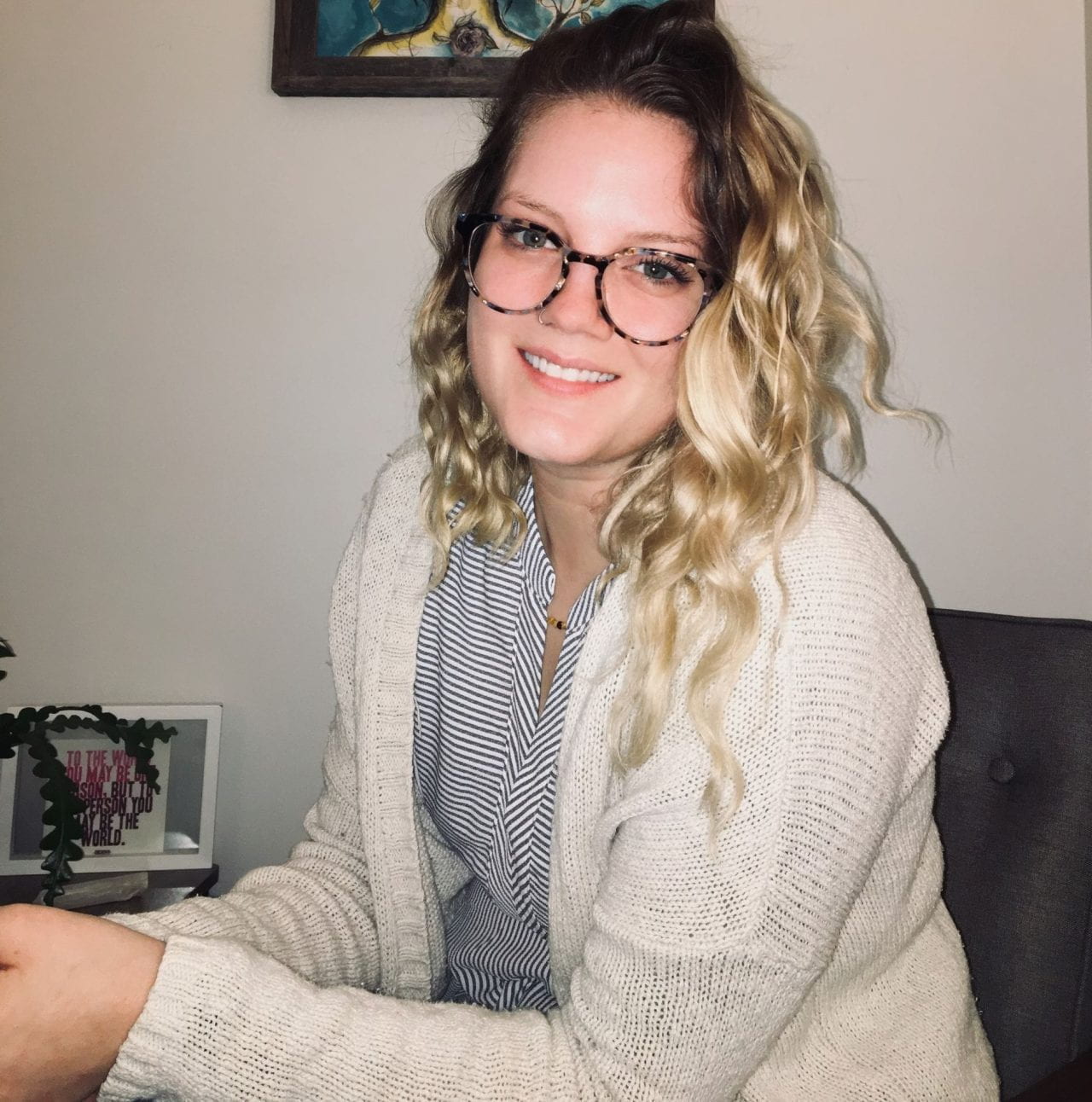
Jessi Dehlin
UC site CFAR Administrator
Bio
Jessi (she/her/hers) joined the center in 2017 as the Manager of Supportive Services. Her previous work experience includes project development, project management, and conducting individual therapy with a range of client populations from low income men and women with chronic mental health diagnoses and addictions to women reentering the community from incarceration. With CCHE being a young organization, Jessi saw administrative needs that the Center had, which aligned with her own professional interests around organizational development and supporting staff. In 2019, Jessi moved into the Senior Manager of Center Growth & Development role, where she oversaw the Center’s strategic planning, internal HR, staff development and foundation grant writing. As a social worker in an administrative role, Jessi is able to bring a unique perspective when approaching the CCHE’s organizational needs and growth, making meaningful relationships with collaborators and community members, keeping her focus person-centered, and advocating for necessary policy change within the larger system of the University. Now as the Associate Director of Administration, Jessi focuses on organizational growth and advances, moving the Center forward in its goals. Jessi has two cats who often join in team meetings over zoom, Rafi and Cass. Jessi’s hobbies include yoga, bullet journaling, spending time with friends and family, and thrill seeking!

Becca Eavou
UC site CFAR Administrator
Bio
Rebecca is the Director of Prevention for CCHE. She oversees program and staff development for the Center. Her previous experience includes research study design and implementation, counseling with adolescents and young adults, adolescent STI/HIV prevention, and wrap-around case management for individuals and families living with or affected by HIV. Rebecca is particularly interested in implementation science and the translation of research into clinical practice among individuals at increased vulnerability for HIV infection. Rebecca holds a Master’s in Clinical Social Work and a Bachelor’s degree in Psychology from the University of Chicago.
CFAR CORE Directors
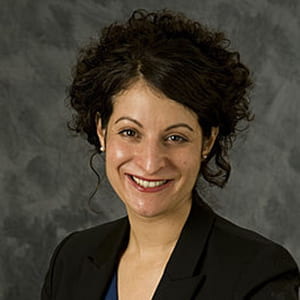
Alida Bouris
Behavioral, Social, and Implementation Sciences (BSIS) Core Co-Director
Bio
Alida M. Bouris is an Associate Professor in the University of Chicago’s School of Social Service Administration. Her primary research area is in the development of family-based interventions to prevent HIV/AIDS, sexually transmitted infections, and unplanned pregnancies among Latino and African American adolescents and young adults. She also is working on the development of family-based interventions to support the health and well-being of sexual minority youth. Within these areas of research, Professor Bouris is primarily working with African American and Latino young men who have sex with men and with Latino adolescents and young adults.
At SSA, Professor Bouris teaches courses on social work practice and cognitive-behavioral therapy. She has published extensively in the field of adolescent health and HIV prevention and is Co-Principal Investigator of the newly developed STI and HIV Intervention Network (SHINE) at SSA. Professor Bouris’s research has been funded by the Centers for Disease Control and Prevention, the National Institutes on Drug Abuse, and the National Institute of Mental Health. Her current research is examining the role of families in supporting the sexual and mental health of young MSM. Learn more.
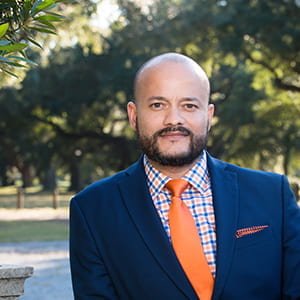
Russell Brewer
Implementation Scientist
Bio
Dr. Russell Brewer currently serves as Research Associate Professor at the University of Chicago Medicine and Director of Health Equity Research at the Chicago Center for HIV Elimination. From 2011-2017 he was the Director of the HIV/STI Portfolio at the Louisiana Public Health Institute in New Orleans, Louisiana. He has more than 19 years of experience in program development, implementation, evaluation, and public health research in a variety of settings (e.g., non-profit, governmental public health, and philanthropy) and levels (e.g., local, state, and national).
His HIV research and programmatic efforts are focused on addressing the socio-structural barriers (e.g., incarceration, stigma) to HIV prevention and care among Black men who have sex with men (BMSM), persons living with HIV infection, and criminal justice-involved populations in Chicago and the Southern United States (US). From 2010-2012, he was an HIV Prevention Trials Network (HPTN) Scholar conducting research to explore the relationship between incarceration and HIV among BMSM enrolled in the HPTN 061 study. From 2008-2011, he was Program Manager at FHI 360 (formerly AED) in Washington, DC where he managed the partnership component of an NIH-funded national education initiative designed to build awareness and support for HIV vaccine research among African Americans, Hispanic/Latinos, and gay/bisexual men of all races. He is a peer reviewer for multiple journals and former member of the American Journal of Public Health Editorial Board. He received his Doctorate degree in Public Health from the University of Oklahoma Health Sciences Center. Dr. Brewer is an explorer at heart and has lived in Liberia, Seychelles, Kenya, and 8 US cities.

Anna Hotton
Biostatistics and Computational Resources Team & BSIS Co-I
Bio
Anna Hotton is Director of Epidemiology at CCHE and a Research Assistant Professor Appointment with the Department of Medicine. Dr. Hotton is an epidemiologist with expertise in complex study design and quantitative methods. Her current research focuses on the impact of socio-structural stressors on HIV/STI risk and patterns of care engagement. Future goals include application of computational modeling approaches to advance understanding of mechanisms by which structural barriers impact HIV related outcomes among diverse groups, including MSM and transgender women.
Dr. Hotton received her MPH and PhD in epidemiology from the University of Illinois at Chicago School of Public Health. She has been engaged in collaborative HIV/STI prevention research with academic and community partners in Chicago for over eight years, serving as a biostatistician on numerous NIH and CDC funded studies. Past and ongoing work has involved evaluation of primary and secondary prevention interventions, and studies aimed at understanding psychosocial and contextual influences on risk behavior, PrEP uptake, and engagement and retention in care. Learn more.
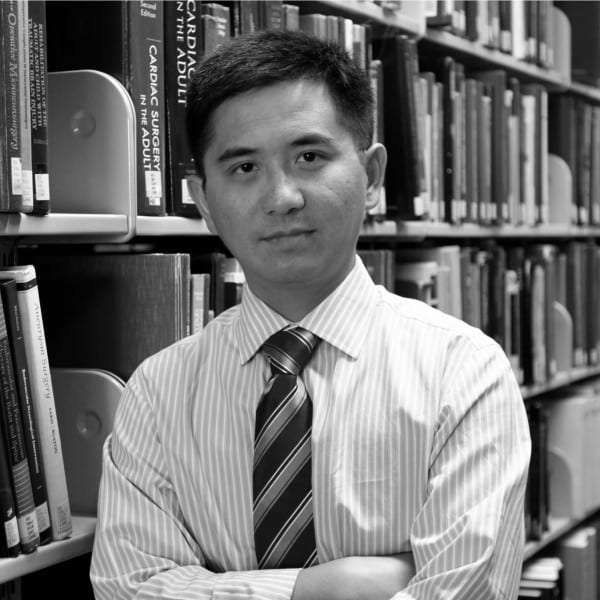
Jun Huang
DIG & VPC Co-I
Bio
Jun Huang received his MS in chemical engineering in 2007 and PhD in bioengineering in 2008 at the Georgia Institute of Technology.
Prof. Huang started his postdoctoral research in immunology in 2009 at Stanford University. He is a recipient of the prestigious NIH Pathway to Independence Award (K99/R00 program).
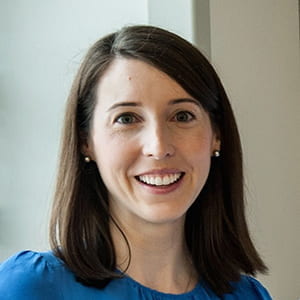
Moira McNulty
Implementation Scientist
Bio
Moira McNulty is a Clinical Instructor in the Section of Infectious Diseases and Global Health. Moira’s research focuses on HIV testing and how it can be optimized to engage individuals in the HIV care and prevention continuum. She is also interested in strengthening existing academic partnerships with public health entities and is currently working with the Chicago Department of Public Health. In her clinical practice she cares for individuals living with HIV as well as providing PrEP for individuals at risk.

Olga (Olya) Morozova
Faculty Affiliate
Bio
I received my PhD degree in Epidemiology of Microbial Diseases from Yale School of Public Health and completed my postdoctoral training at Yale Biostatistics.
I hold an MS degree in Mathematical Modeling in Social Sciences and a BS degree in Applied Mathematics from the National University of Kyiv, Ukraine. Prior to my PhD training, I worked as a strategic information expert at the National HIV and Tuberculosis control programs in Ukraine, and as a public health consultant in a variety of international settings.
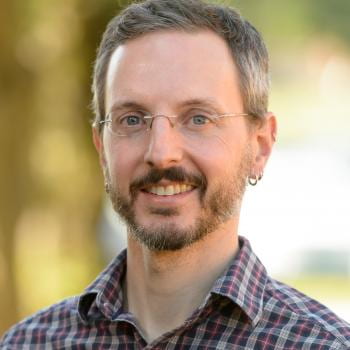
Jonathan Ozik
Biostatistics and Computational Resources Team & BSIS Co-I
Bio
Computational Scientist at Argonne National Laboratory and Senior Scientist in the Consortium for Advanced Science and Engineering at the University of Chicago. Dr. Ozik develops applications of large-scale agent-based models, including models of infectious diseases, healthcare interventions, biological systems, water use and management, critical materials supply chains, and critical infrastructure. He also applies large-scale model exploration across modeling methods, including agent-based modeling, microsimulation and machine/deep learning. Dr. Ozik leads the Repast project (repast.github.io) for agent- based modeling toolkits and the Extreme-scale Model Exploration with Swift (EMEWS) framework for large-scale model exploration capabilities on high performance computing resources (emews.org).
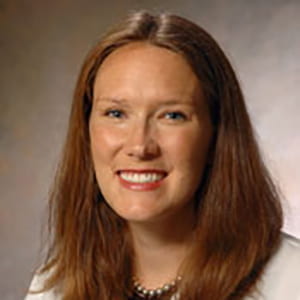
Jessica Ridgway
Clinical Sciences Core Co-Director
Bio
Dr. Jessica Ridgway is an Assistant Professor in the Section of Infectious Diseases and Global Health. Her research focuses on the use of predictive analytics to improve care along the HIV care continuum. She also utilizes clinical informatics to improve HIV testing and linkage to prevention services including PrEP care among high-risk HIV-negative individuals. In her Infectious Diseases clinic, she provides primary care for adults and pregnant women with HIV, as well as PrEP care.
Dr. Ridgway’s research involves using “big data” in the form of advanced electronic medical records to understand and predict risk factors for falling out of care at each stage of the HIV care continuum. She developed an electronic algorithm to identify high-risk HIV-negative clients to guide prevention outreach and PrEP referral. She is currently creating a tool to predict HIV-positive clients’ risk of poor retention in care to guide multidisciplinary, personalized retention interventions. She leads the CDC-funded Data to Care Initiative, an effort to use electronic algorithms to identify and re-link HIV-positive patients back into care. Dr. Ridgway also serves as the Associate Hospital Epidemiologist at University of Chicago, where she oversees clinical informatics for infection prevention.
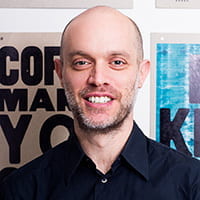
John Schneider
Steering Committee & PI
Bio
Dr. John Schneider MD, MPH is an infectious disease specialist and network epidemiologist in the Departments of Medicine and Health Studies. His NIH funded research focuses on how social networks can be leveraged to improve the health of at risk populations in resource restricted settings. Clinically, he specializes in adolescent and adult HIV primary care and has a specific interest in provision of high-quality care to LGBT community members. He has extensive experience with advancing the physician patient relationship in resource restricted settings, including his current clinic at a Federally Qualified Health Center on the South Side of Chicago and during his time working in Southern India.
Dr. Schneider’s research employs social and sexual network analysis to accelerate prevention of Human Immunodeficiency Virus and Sexually Transmitted Infections among high-risk male adolescents and younger adults in resource restricted settings. This research program was fostered by a unique co-mentorship structure with Ken Mayer and Ed Laumann (internationally recognized leaders in HIV prevention science and sexual network analysis respectively) during his post-doctoral fellowship and career development awards. With support from a Lancet international fellowship, his HIV research program started in South India where he lived and worked focusing upon community-based HIV prevention among mobile high-risk men including long-distance truck-drivers and men who have sex with men. His work now operationalizes novel prevention intervention strategies in resource restricted settings through: 1) rigorous social network assessment; and 2) leveraging social network structures as human interventions integrated with biomedical prevention. He has expertise in using technology-supported network approaches, such as cell phones and Facebook, to recruit and retain difficult to reach populations into HIV prevention studies both in the United States and India. Using these methods, he has completed some of the first formal network analyses of Black MSM as part of an interdisciplinary team at CCHE. He also has experience assessing the acceptability, willingness to use and modeled efficacy of most prevention methods proposed for high-risk men. This work is continuously informed and improved by his clinical work in a major epicenter of the domestic HIV epidemic. Dr. Schneider also enjoys spending time in the outdoors, including biking, birdwatching and trekking.
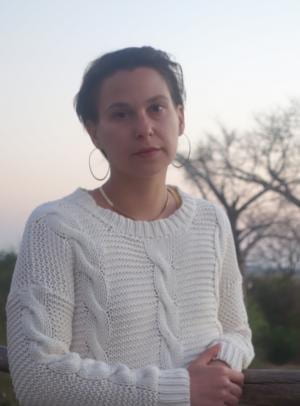
Jenny Trinitapoli
Developmental Core Director
Bio
@will.is.petty willispetty will.is.petty
cchevillage sabre will pettway theatre actor director comedian sex ed teacher cfar icah free street theatre alum first gen college student
Get Tested
When was the last time you had an HIV or STI test? We can help you find somewhere to get tested.